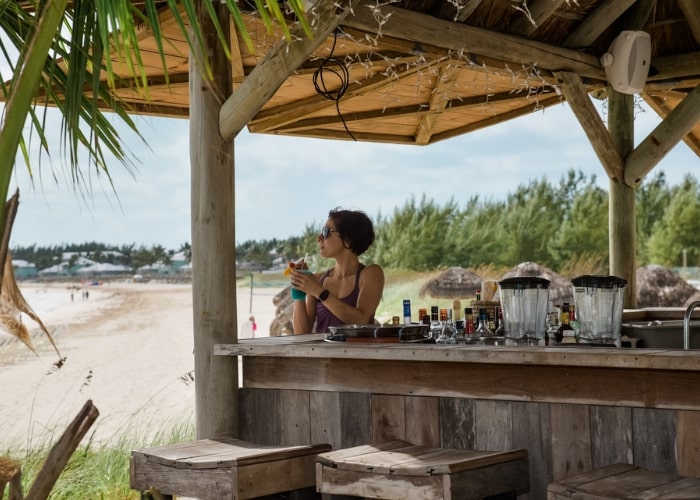MALAGA -The traditional wooden “chiringuitos” on the Costa del Sol are increasingly giving way to modern buildings with a concrete foundation. However, this underground construction is harmful to the sandy soil, which is legally difficult to protect.
On the beaches of Marbella and Málaga, more and more modern beach bars have been added in recent years. Many of these structures are made of concrete, which offers the possibility to create an underground warehouse or office. In this way, square metres are created that do not have to be included in the application for the building permit.
The plot of land on which these beach tents are built, the so-called Dominio Público Marítimo Terrestre (DPTM) is an officially protected area because of its natural value. For years, the local authorities responsible for the DPTM have been warning about the consequences of building on this beach strip. This is due to the fact the building causes damage and erosion of the sandy beaches. Despite these warnings, the Andalucian government continues to issue new permits for the construction of concrete beach bars.
400 permits for chiringuitos in unprotected natural area
A 2019 study shows that only 26% of the Andalucian coast is actually protected. That percentage drops drastically to 2% if only the coast of Málaga is considered. Permits have been issued there for 400 chiringuitos. This is half of the total number of permits in the whole of Andalucia.
Environmental organisations Ecologistas Malaka and Ecologistas and Acción have launched a joint campaign. This is against the chiringuitos who “urbanise” the coastal strip with their immovable infrastructures and large terraces. They discuss the current Coastal Act, which is amended too often and therefore remains too unclear. As a result, building permits are unlimited by the regional administration.
Promotion of tourism
Since 2011, the regional government of Andalucia has been responsible for the development of the Andalucian coast. This also includes the responsibility for whether or not to issue new building permits directly on the beach. The regional government has always promoted construction here with a view to tourism, the region’s main economic sector.
Now that underground construction has emerged, it will no longer be without consequences for the natural environment. Environmental organisations believe that the authorities are turning a blind eye. This is despite the fact that it is a legally protected area. Sometimes procedures can take years, but in the end the permit is almost always issued.
Concrete forms barrier to tidal current
According to the local authorities responsible for the DPTM, the erosion of the sandy beach is increasing. Also the natural recovery is decreasing as a result of the underground construction. The concrete forms a barrier to the tide of the sea. This causes the waves on the beach to intensify and more and more sand to be lost. As a result, the erosive consequences of storms are also increasing. This is not only harmful to nature, but in the long term also to tourism. And ultimately to the economy of the region. Ecologistas Malaka and Ecologistas en Acción therefore argue that the building permits are no longer issued by the regional authorities, but by the local authorities for the DPTM who are more interested in preserving the natural environment.


